This deaf social entrepreneur from the US is creating a big bang in India
Alim Chandani was born deaf. But this did not stop him from creating a huge din about the rights of the hearing impaired.
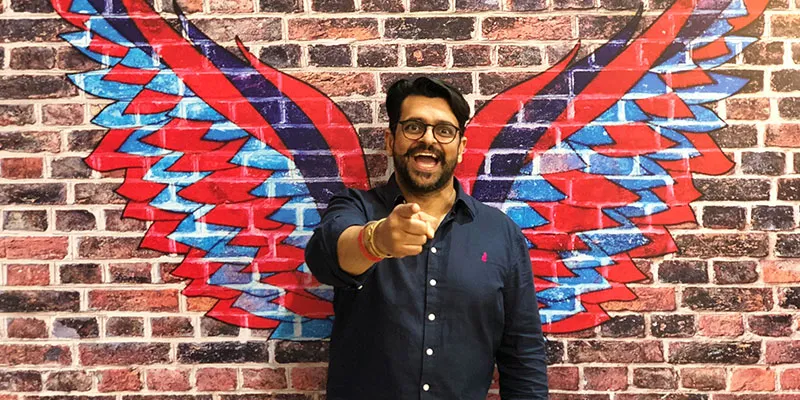
As the founder of Global Reach Out Initiative (GRO), Alim Chandani is empowering deaf individuals in India by creating awareness of their deaf identity and providing resources for them to reach higher.
In 2007, Alim set up GRO in the US and decided to move to India in 2016 by collaborating with Centum Foundation, a CSR initiative funded by Airtel’s Sunil Bharti Mittal.
Sound of silence
Tucked in between a quaint little Tibetan tea shop and a nondescript block of apartments in Delhi’s busy Hauz Khas area, CentumGRO buzzes with an energy all its own.
The day has just begun and teachers are in conference discussing their new curriculum. Saurav Roy, Alim’s personal sign language interpreter, introduces me to the teachers. In the time leading up to the interview, I have only been able to be conversant with the phrase, ‘nice to meet you,’ which I later realised to my embarrassment was in American Sign Language, unlike the Indian Sign Language used by the teachers and students at CentumGRO.
What sets this initiative by Alim apart from the other deaf schools is that the students are taught by teachers who are deaf themselves.
Since it set up an office in Delhi, seven batches of students have graduated from here.
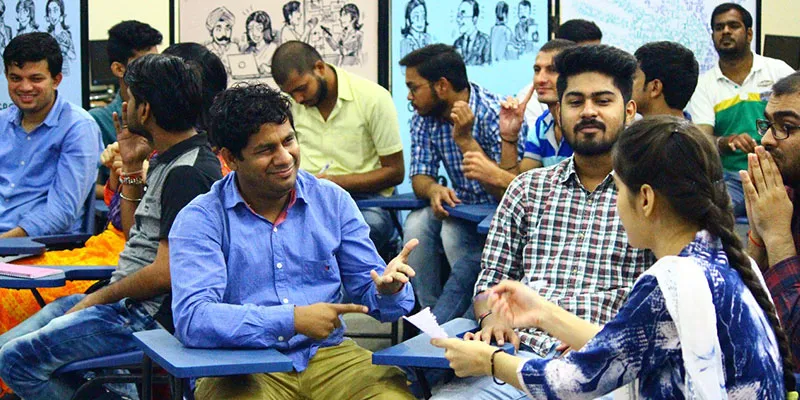
CentumGRO provides a comprehensive two-month skilling programme. The team of deaf experts creates an empowering visual curriculum to meet the students’ learning needs. The Deaf Empowerment Courses teach leadership skills, deaf studies, accountability, and how to prevent discrimination.
Teachers use a bilingual approach incorporating Indian Sign Language (ISL) to teach reading, writing, and English skills. During mock interviews, they do role-play activities to practice effective communication techniques on how to communicate with hearing people on the job.
According to the teachers here, who themselves have been students of CentumGRO, it is important that teachers use Indian Sign Language to connect with deaf students to understand and develop self-empowerment skills.
This proactive method has helped many students of CentumGRO like Aneesh Kumar, who is now a manager at a high-end restaurant in Delhi.
A couple of years ago, like many in the deaf community, he was in a constant battle with an apathetic system to realise his dream of living up to his potential. Alim tells me that all his students aspire to lead fulfilling lives and it is heartening for him to see that CentumGRO has become a springboard to make their dreams come true.
Today, Alim serves on the Rights of Persons with Disabilities (RPWD) committee to advocate for increased accessibility for the deaf community such as mandating English subtitles in Indian cinemas.
He is also in the process of creating an app in Indian Sign Language to better understand the Rights of Persons with Disabilities Act. “The law is so verbose that it is difficult for anybody to interpret it. I want to create an app where we have role-play scenarios that explain the Sections and Articles of the Act,” Alim explains.
Alim has come a long way indeed since he decided to return to India.
Sign of the times
Having been born deaf in a country where disability means the end of all happiness and aspirations, Alim was sent to the US to study. “I studied in California and in the beginning, I did not know about sign language,” says Alim through his interpreter Saurav, who does an excellent job of translating not only the sentences but every nuance contained in them.
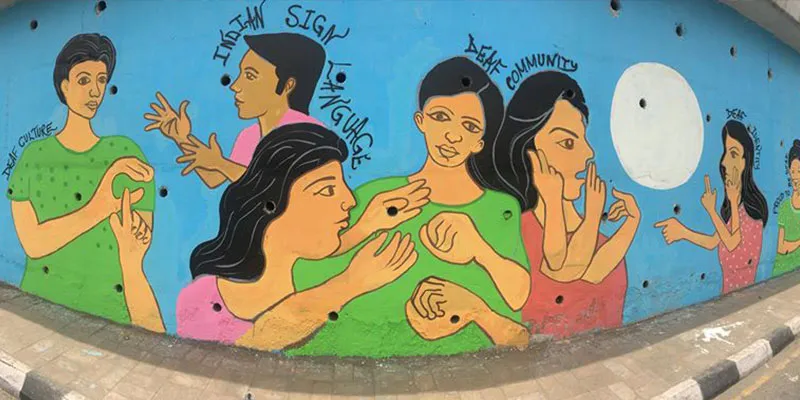
It is no wonder that Alim greatly appreciates a good interpreter when he sees one. “There is a dearth of interpreters and good interpreters are indeed rare gems,” he says. At this point of time, India has only 250 good interpreters to a population of nearly 18 million deaf people, he informs me.
Alim is also in the process of establishing a working group on Ethics and Professional Code for ISL Interpreters. He had hosted the first interpreter retreat in January this year where they had 35 interpreters from across the country. “The goal is to establish a policy which has a code of conduct and ethics of interpreters,” he adds.
Head, heart, hustle
In 2013, Alim went on to graduate with a Doctorate in Administration and Supervision in Special Education from Gallaudet University in Washington, DC. His dissertation was on the feasibility of managing deaf programmes at higher education institutions in India.
Alim says he had earlier suffered from an identity crisis and yearned to fit in. “At the university, I realised it was ok to be different from the others and saw that people like me were successful and were leaders.”
He went on to become a student body leader, something that he had never dreamt of, and this changed his life forever. “Because of this experience, I was able to do whatever I could later in my life,” he adds.
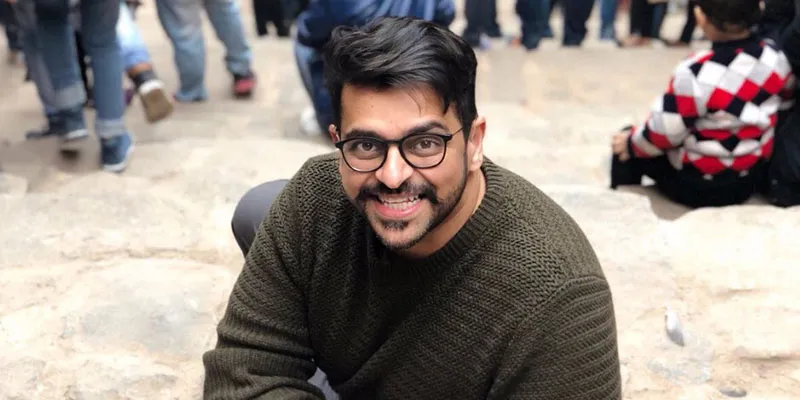
Taking a leaf from Echoing Green, an American company’s motto that encourages people to find their passion through the three ‘H’, namely head, heart, and hustle, Alim made his leap of faith to come to India and start from scratch.
“Your skill represents the head, and what you love to do is your heart. I wanted leadership knowledge and wanted to travel so I came to India to set this up, and that is the hustle,” he says. Alim gave up a prestigious job as a professor at one of the best universities in the world and, as expected, his parents were upset at his decision to come to India for two years to do something that was not done earlier.
Music to the ears
CentumGRO won the Bharti Changemaker Award in the CSR award category for best inclusive communities in India. “How do you make the dream of an accessible India real? We are inviting the hearing people to be part of the deaf people's world through our programme called ISL Trivia quiz, where each team comprises deaf and hearing people. They have to communicate with each other and win together. We have done this in Delhi, Mumbai, and Bengaluru, and have received an overwhelming response,” says Alim.
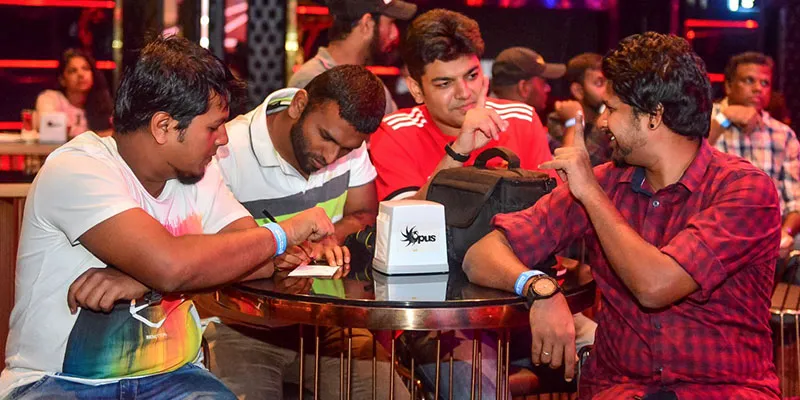
Alim lives by example. A big movie buff, he is running a campaign to demand subtitles in films screened in India. “In the US, it is a law to include subtitles. We should have that in India as well,” he adds. That’s not all, he frequents music concerts and art shows and is encouraging his students to do the same.
It all boils down to having an inclusive culture. Once society realises this, everything will fall into place. And Alim’s experiment with CentumGRO is proving this.







